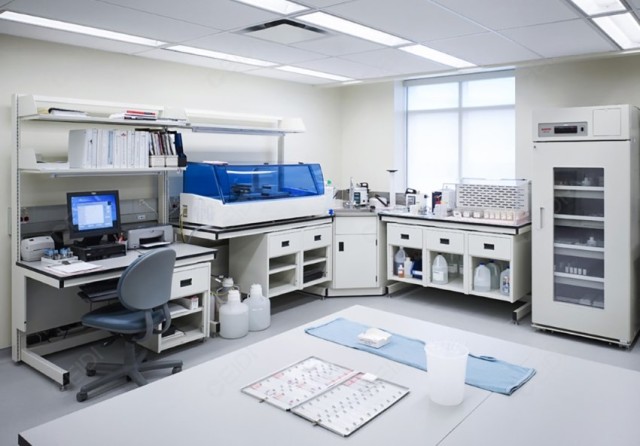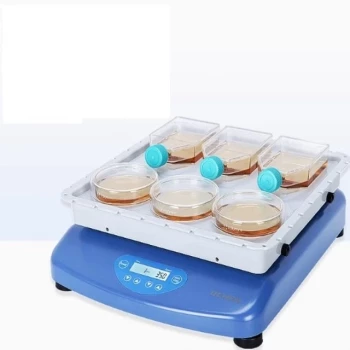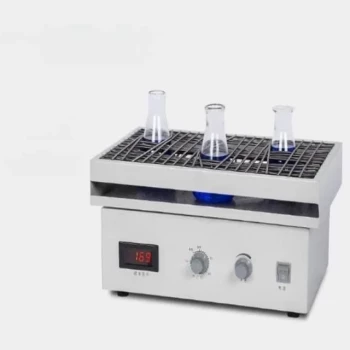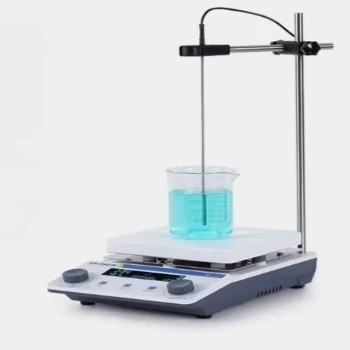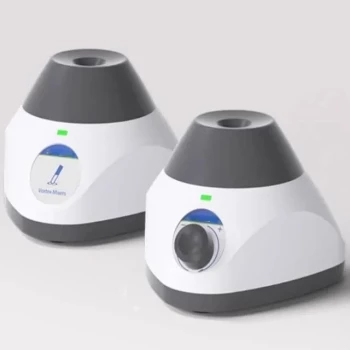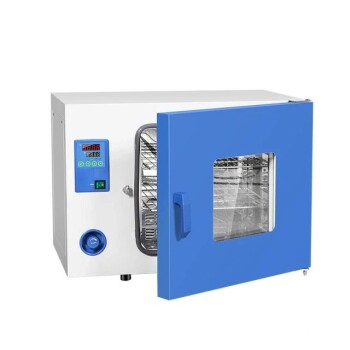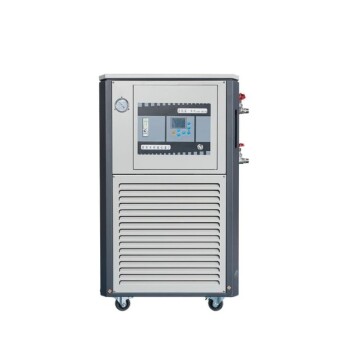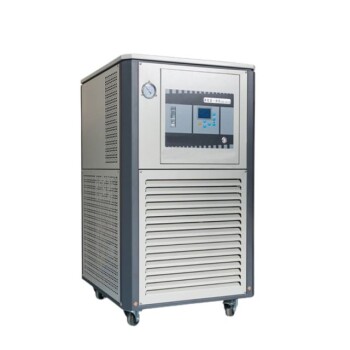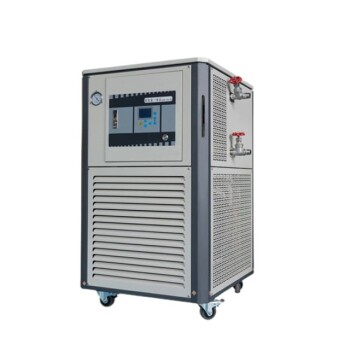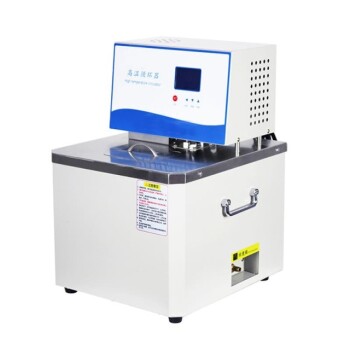恒温培养箱
生化培养箱
生化培养箱配备精密的双向温度控制系统,可同时制冷和加热。这种双重功能可确保精确的温度调节,这对各种实验室应用至关重要。培养箱的温度可控功能使其能够保持稳定的条件,是低温恒温试验、培养试验和环境试验不可或缺的设备。

在低温恒温测试中,生化培养箱可确保样品保持稳定的预定温度,这对准确的数据收集和分析至关重要。在培养测试中,培养箱为微生物的生长和增殖提供了最佳环境,便于详细研究微生物的行为和特性。此外,在环境测试中,培养箱可模拟各种环境条件,帮助研究人员了解不同因素如何影响生物过程。
生化培养箱在微生物学、生物化学和环境科学等广泛科学学科中的应用进一步凸显了它的多功能性。其坚固的设计和精确的控制机制使其成为学术和工业研究环境中的重要工具。
霉菌培养箱
霉菌培养箱是一种专门的实验室设备,旨在通过精心控制封闭空间内的环境条件来促进生物和植物的生长。这些培养箱对于各种生物和微生物研究应用至关重要,其中对温度和湿度的精确控制至关重要。

为了优化生长条件,霉菌培养箱配备了先进的系统,可以对温度和湿度进行微调。这种精确度对于确保霉菌培养能在相对较短的时间内(通常为 4 到 6 小时)发育至关重要。设置和维持这些特定条件的能力不仅能加快生长过程,还能确保实验结果的统一性和一致性。
此外,霉菌培养箱提供的封闭环境有助于防止外部因素的污染,这对保持研究数据的完整性至关重要。这种受控环境对于涉及敏感生物或需要无菌环境的研究尤为有利。
总之,霉菌培养箱是实验室中不可或缺的工具,它为在精确控制的条件下培养生物和植物提供了可靠而高效的手段,从而为各种科学研究提供了支持。
二氧化碳培养箱
二氧化碳培养箱是一种先进的实验室设备,专门用于细胞和组织的体外培养。它精心复制了生物体内细胞/组织的自然生长环境,从而为其增殖和研究提供了最佳条件。

这种专门的培养箱可保持可控的气氛,不仅包括精确的温度和湿度水平,还包括可调节的二氧化碳浓度。这对于维持细胞存活和生长所需的酸碱平衡至关重要。该设备配备了精密的传感器和控制系统,可确保这些参数保持稳定,并在特定类型细胞或组织培养的最佳范围内。
此外,二氧化碳培养箱通常与其他实验室设备结合使用,以创建一个用于生物研究的综合系统。例如,它可以与自动进料系统、成像技术和数据记录工具集成,为细胞培养研究提供整体方法。这种集成不仅能提高研究过程的效率,还能确保实验结果的准确性和可靠性。
总之,二氧化碳培养箱是实验室设备中的重要工具,可为体外细胞和组织培养提供无与伦比的精度和控制。它能够模拟活体生物的复杂条件,是生物技术、药理学和再生医学等领域研究人员不可或缺的工具。
电动恒温培养箱
电动恒温培养箱是科学研究和工业生产领域的基石,尤其是在医疗卫生、制药、生物化学和农业科学等领域。这种多功能设备经过精心设计,可促进细菌培养、发酵和恒温测试,确保精确的环境条件,这对成功培养和分析各种生物实体至关重要。

在医疗卫生领域,电热恒温培养箱在细菌培养物的生长和维护方面发挥着至关重要的作用,而细菌培养物是诊断测试和疫苗开发所不可或缺的。同样,在制药行业,它也有助于生产抗生素和其他药用化合物所需的发酵过程。生物化学和农业科学领域也受益于恒温箱保持稳定温度的能力,从而获得一致可靠的实验结果。
电热恒温培养箱不仅仅是一个被动的生物样本容器,它还是科学过程的积极参与者,确保培养箱内的条件完全符合所研究生物的需要。这种精确性是通过先进的温度控制机制实现的,它可以不受外部波动的影响,保持环境的一致性,从而提高实验结果的可重复性和可靠性。
此外,它的应用范围不仅限于保持温度,还支持各种特殊的培养需求,例如涉及光照、湿度甚至受控气体环境的培养需求。这种适应性使电热恒温培养箱成为现代实验室的宝贵工具,因为在这些实验室中,对精确和一致结果的要求是最高的。
专用培养箱
光照培养箱
光照培养箱是一种专门的实验室设备,用于培养和繁殖各种微生物,包括细菌和霉菌。与通常仅依赖温度控制的其他培养箱不同,光照培养箱集成了温度和光照控制,为微生物生长提供了更全面的环境。

光照培养箱的内胆通常由工程塑料或不锈钢制成。材料的选择至关重要,原因有以下几点:
-
工程塑料:具有出色的耐化学性,因此非常适合用于培养各种微生物而不会产生化学反应。它的表面光滑,易于清洁和维护,这对于防止培养物之间的交叉污染至关重要。
-
不锈钢:不锈钢以耐用和耐腐蚀著称,可确保培养箱经得起实验室环境中频繁使用的严酷考验。它还有利于热量的有效分配,这对保持培养箱内温度的稳定至关重要。
这些材料不仅能确保培养箱的使用寿命和功能性,还有助于提高培养过程的整体无菌性和效率。
人工气候箱
人工气候箱是一种多功能实验室工具,可促进各种生物和环境研究。其主要应用包括 发芽和幼苗培育 人工气候室可提供模拟自然生长环境的受控条件,从而提高植物繁殖的成功率。此外,该箱还有助于 组织和微生物培养 提供稳定的无菌环境,支持各种生物标本的生长。

适用于研究 昆虫和小动物的研究人员 人工气候室为研究昆虫和小动物的研究人员提供了一个可模拟不同气候条件的受控栖息地,有助于观察和分析行为和生理反应。这种功能还可扩展到 水分析 人工气候室可用于测定生化需氧量 (BOD),这是评估水质的一个关键参数。
除这些特定用途外,人工气候室还可用于 一般人工气候试验 在这里,它可以复制各种环境条件,以评估材料、产品和系统在不同气候条件下的性能和耐用性。这种广泛的适用性使其成为学术研究和工业应用中不可或缺的资产。
恒温恒湿箱
恒温恒湿试验箱是材料科学与工程领域不可或缺的工具,旨在模拟各种环境条件。研究人员可以利用该试验箱评估材料在各种温度和湿度条件下的性能,从而测试材料对热、冷、干燥和潮湿等条件的适应能力。

通过将材料置于受控的环境压力下,科学家们可以预测这些材料在真实世界中的表现,这对于从汽车到航空航天等行业都至关重要。例如,在实验室极热和极湿条件下表现良好的材料,在热带气候或长时间暴露在阳光直射下更有可能保持其完整性。
恒温恒湿箱的用途不仅限于材料测试。它还可用于生物研究,模拟微生物、植物和其他生物标本生长和研究所需的环境条件。这种功能使其成为农业、制药和环境科学等领域的宝贵资产。
总之,恒温恒湿试验箱不仅仅是一种设备,它还是一种先进的工具,可促进多个科学学科的关键研发活动。
微生物培养箱
微生物培养箱是一种专门的箱式设备,用于培养各种微生物,包括细菌、霉菌和植物/动物细胞。这种多功能工具在生物研究中至关重要,可模拟这些生物所需的最佳生长条件。

温度、湿度、光照、二氧化碳含量和酸碱度等关键环境参数都在培养箱中得到了精心控制。这种精确的调节可确保内部环境模拟被研究生物的自然栖息地,从而促进其生长和繁殖。例如,细菌通常在温暖潮湿的环境中生长,而霉菌则需要特定的湿度和光照条件才能繁殖。
微生物培养箱保持稳定和受控环境的能力对于需要一致结果的实验至关重要。无论是研究温度对细菌生长的影响,还是二氧化碳水平对植物细胞培养的影响,培养箱都能为此类研究提供可靠的平台。
总之,微生物培养箱是实验室环境的基石,为研究人员提供了在精确控制的条件下培养和研究各种微生物的手段。
厌氧培养箱
厌氧培养箱专为培养厌氧生物而设计,厌氧生物是指在无氧环境中生长的微生物。这些培养箱通过系统地去除或降低箱内的氧气含量来创造受控的无氧环境。这是通过各种方法实现的,例如使用不含氧的混合气体或使用真空系统去除箱内的氧气。

这些培养箱不仅能提供严格的厌氧条件,还能保持恒温,这对厌氧生物的生长和存活至关重要。温度控制系统可确保内部环境保持稳定,模拟这些生物的自然栖息地。厌氧条件和恒温这双重功能使厌氧培养箱成为研究厌氧细菌和其他微生物的实验室不可或缺的设备。
厌氧培养箱的设计既系统又科学,工作区井然有序,可以精确控制和监测箱内的条件。这包括先进的传感器和控制系统,可持续监测和调整氧气和温度水平,确保培养生物的条件始终处于最佳状态。系统化的布局还便于使用,使研究人员能够高效地进行实验,并将对微妙厌氧环境的干扰降至最低。
振荡培养箱
振荡培养箱是一种专门用于培养生物样本的实验室设备。与保持静态环境的传统培养箱不同,振荡培养箱采用轻微的摇摆运动来模拟自然条件,例如自然栖息地中水的运动。这种运动对某些类型细胞的生长和发育至关重要,尤其是那些需要搅拌以促进营养物质分配和废物清除的细胞。

振荡培养箱的主要功能是提供一个可控的环境,以支持生物样本的生长。这包括保持精确的温度、湿度和二氧化碳水平,这对细胞的存活和增殖至关重要。振荡功能为培养过程增加了一层复杂性,它不仅能确保样品保持在最佳条件下,还能确保样品受到温和、持续的运动。
振荡培养箱在微生物学、细胞生物学和生物技术等领域特别有用。它们通常用于培养细菌、真菌和其他受益于或需要动态环境的微生物。通过控制振荡的频率和振幅,研究人员可以根据样品的具体需要调整培养条件,从而提高实验的准确性和可靠性。
总之,振荡培养箱不仅仅是一个静态环境的提供者,而是一个模拟自然条件促进生物样本生长的动态系统。它的独特功能使其成为各种实验室环境中不可或缺的工具,尤其是在细胞与其环境之间的相互作用对研究成果起着关键作用的情况下。
